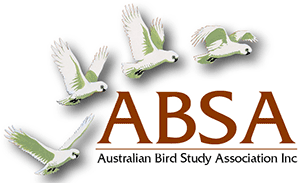Recoveries of Little Penguins Eudyptula minor flipper-banded at colonies in western Victoria
| Posted: |
20/04/2017 |
| Author(s): |
D. Drynan, D. Sutherland, F. I. Norman, P. Dann, P. Du Guesclin |
Between 1971 and 2008, 3773 Little Penguins Eudyptula minor were flipper-banded at 20 colonies (and other sites)
in western Victoria from Lorne in the east to Portland in the west. Most of these (2351; 62.3%) were at Port Campbell,
with a further 949 (25.1%) at Middle Island, near Warrnambool. In general, bandings were of nestlings (2037; 54% of
total banded) rather than adults (1736; 46%). Of the penguins banded, 222 (5.9%) were recovered (found dead) either
on land (166; 74.8% of recoveries), or as floating or beach-washed corpses (52; 23.4%). Of those found on land, 107
(64.5%) were considered to have been depredated, usually (91; 85%) by mammals (wild or domesticated dogs Canis
familiaris or cats Felis catus, and foxes Vulpes vulpes). Only a few (31; 0.8% of those banded) recoveries were made at
a substantial distance from their banding site. Such distant recoveries indicated that, on average, banded birds from the
western Victorian colonies moved only about 38 km from the banding site, with a larger proportion (67%) being found to
the west. These recoveries were made between Discovery Bay (147 km) to the west of the banding sites and Moonlight
Head (78 km) to the east. There was no evidence that recoveries were related to mortalities of pilchards Sardinops sagax
in either 1995 or 1997. It is thought that Little Penguins fledging and/or breeding in western Victoria may not have to
move extensively, because local offshore waters there are relatively productive, with nutrients being provided via the
nearby Bonney Upwelling and their subsequent transport by predominantly westerly currents. This is in marked contrast
to penguins from other Victorian colonies that may make extensive movements between breeding seasons either as
dispersing young or adults, often towards western Victoria.
>> Download Abstract |
File Size: 9 KB
>> Download Complete PDF | File Size: 343 KB
